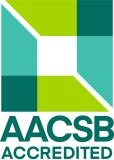Economics: Data Science
Become an economist with hands-on experience in processing and interpreting unstructured (big) data sets. With a strong foundation in statistical modeling and additional training in programming languages, you will have the right skills to understand the economic value of data and to become an ''analytics translator'': a person who can bridge the technical expertise of data engineers with the end user in any organization (managers, policy makers, etc.). This is a track of MSc Economics.
in 2022/2023
MSc Economics including all tracks
National Student Survey, 2023, MSc Economics including all tracks (n=41)
Program and courses
The track 'Data Science’ trains economics students in programming languages that are used in firms, the public administration, and research to work with big data and algorithms (Python and R), including hands-on exercises that analyze and present (big) data sets from structured and unstructured sources, such as Internet and Social Media data, e-mails, company reports, images, or data from diverse administrative data sources.
- Moreover, it offers a deeper understanding of innovation economics, the consequences of datafication, and, thereby, how innovation affects markets, political landscapes, and our societies – and what to do about it as policy maker.
- Finally, your strong foundation in Econometrics and Economic Analysis gives you the ability to make sense of data from an economist’s perspective.
- This is a track of MSc Economics. You can choose to follow the main program or one of the tracks.
Typical courses are:
- Data Science for Economics
- Data Science and Society
- Econometrics 1 & 2

Career prospects
Upon graduating, you will have obtained the following title (as stated on your diploma): Master of Science.
Data scientists are highly sought after in today’s economy by all types of private and public organizations, as they enable those organizations to make better decisions (based on data). Students taking this track will become ‘translators’ between data miners (who have a computer science or engineering background) and economic and political decision makers, who rely on advice based on data.
Some examples of our graduates' jobs:
- IT Consultant at Adesso Austria
- Data Translator at Building Blocks
- Data Analyst at 10XCREW
Alumni facts
- 100% are (very) satisfied with the Master's program
- 95% would recommend the program to friends, family and colleagues
- 81% would choose the same program at the same university
Source: National Alumni Survey, 2021 | MSc Economics including all tracks| n=21

Application and admission
This Master’s program starts:
End of August and end of January
Best preparatory programs:
A Bachelor’s degree in Economics or in a similar program (e.g., in Econometrics)
Pre-Master’s program:
Open to Research University students, not to students from a Dutch University of Applied Sciences (HBO).
Tuition fees and scholarships
International students find the information about the tuition fees and the scholarships available here.
Interested in this Master’s program?
More information on this Master's program
Create your own e-brochure with information on program content, admission requirements, career prospects, and student life in Tilburg. Throughout the year you can take part in various types of events: on-campus, abroad or online.
-
16:00 - 17:00
Housing - Live webinar for Bachelor's and Master's students
Interested in finding accommodation in Tilburg as you get ready to start your studies? Join our interactive Live Webinar on Housing on April 25. Meet our international team and learn more about the city. You can join the 1-hour webinar either at 10:00 or 16:00 CEST.
-
13:30 - 15:45
Campus Experience
Are you curious about life as a student at Tilburg University, or not sure which university you want to attend? Join our Campus Experience on Wednesday
May 8! Discover our compact and green campus with one of our students and find out if Tilburg University is your future home. -
To be announced
Master's Open day
Are you interested in doing a Master's program? Do you want to specialize or are you looking for a Master that broadens your possibilities? Join us at the Master's Open day on November 16 to find out which (pre-)Master's program suits you best. Learn all about our (pre-)Master’s programs and tracks, and ask teachers, students, and education coordinators your questions.
Interested in the MSc Economics?
Check your eligibility and the deadlines for application



